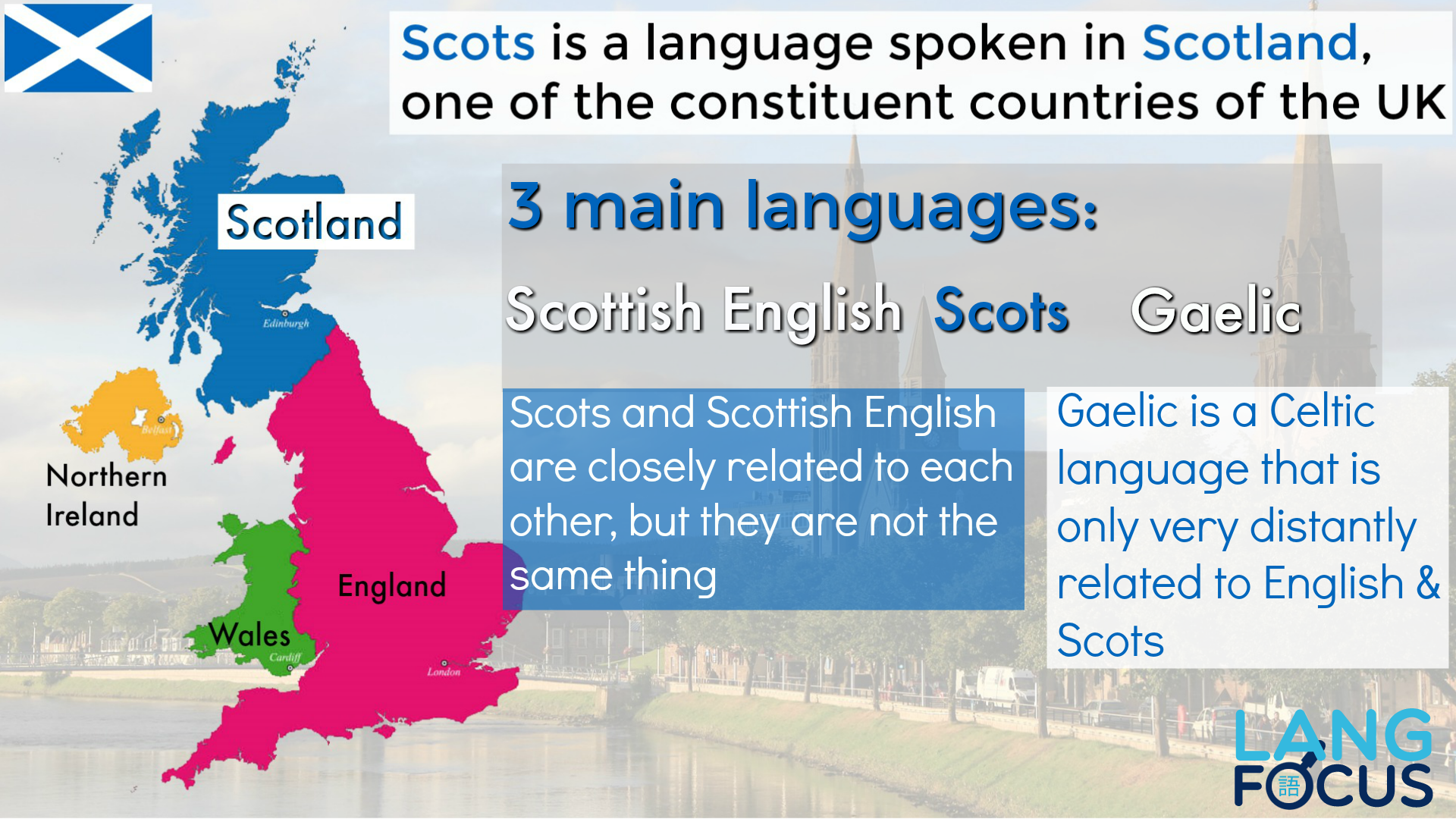

There are four main Scots dialects: Insular (spoken in Orkneyand Shetland) Northern (uttered from Aberdeen all the way down to Angus) Central (said everywhere from Glasgow to Dumfries and Argyll) and Southern (heard in the bonnie Borders).īut that’s not all. ‘Scots’ may be the national name for the language, but there’s much more to it than a single spoken tongue. Wheesht – to call for silence or to be quietĪ fitting end to our whistle-stop tour of Scots – silence!ĭon’t know your bahookie from your oxter? Don’t worry – you’re not alone. In Aberdeenshire, there are no ‘boys’ and ‘girls ’ there are ‘loons’ and ‘quines.’ In English: “Go and have a quick look out of the window.” In a sentence: “Goan take a keek oot the windae.” Try to avoid ‘keeking’ during your travels in Scotland – the views deserve a longer look! In English: “Get away – you’re talking nonsense!”

The popularity of this word owes a debt to the dulcet tones of a pair of bespectacled twins from Fife. In English: “Don’t be so thoughtless – do something!” In a sentence:“Dinnae be so glaikit – dae something!” In English: “He’s very cheeky, that one.”Īs well as some beautiful phrases, Scots is a language filled with unusual insults. In a sentence: “He’s pure galllus, that yin.” This is Glasgow summarised in six letters. In English: “My headphones are all tangled.”

In a sentence: “Ma heidphones are aww fankled.” Whether describing shoelaces or situations, fankle is a fantastically versatile bit of language. Fankle – to entangle, a tangle or confusion


 0 kommentar(er)
0 kommentar(er)
